Home > Tennessee > Tennessee Crops & Livestock > Counting on Tennessee Crops
Counting on Tennessee Crops
In partnership with: Tennessee Department of Agriculture

West Tennessee’s Obion County may be known as a haven for growing soybeans and cotton, but a relatively new industry there has helped to put the spotlight on corn.
Omaha, Nebraska-based Green Plains Renewable Energy, North America’s fourth largest ethanol producer, opened a plant in Obion County in 2009. This facility processes mostly locally grown corn into ethanol as well as dried distillers grain and corn oil. As a result, local growers now have another option besides just sending their corn down the Mississippi River.
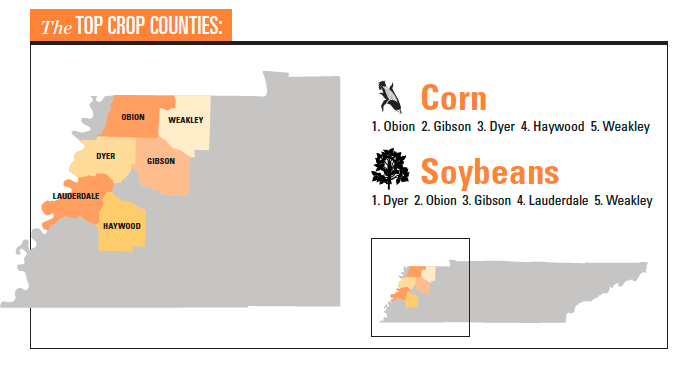
“Typically, the corn would be shipped to the river and sent down the river on barges, quite often for exporting,” says Pat Hogan, general manager for GPRE’s Obion County plant. “So they miss out on that revenue step, whereas if they sell locally, they enjoy the local revenue. I’m not originally from this area, and from what I understood this was not a typical corn-growing area, but rather soybeans and cotton. Since the establishment of this facility, corn has gained prominence in this area. Now it’s given the farmers the option of growing soy, cotton or corn, whichever market is giving the most bang for their bucks.”
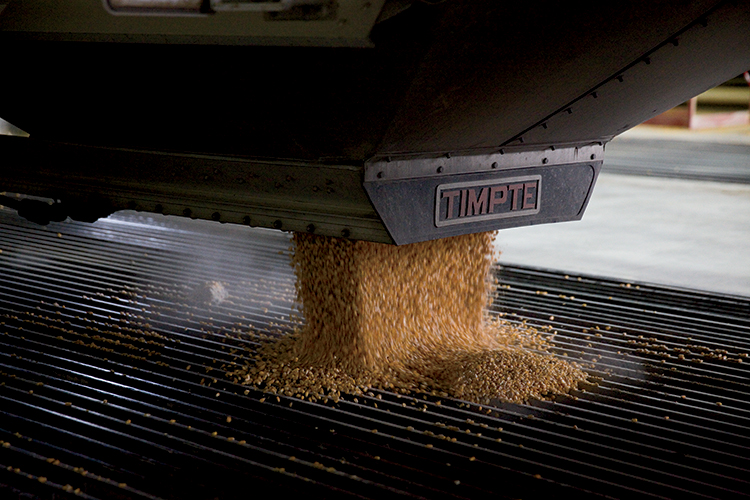
Corn’s Many Uses
The grain-processing industry has been providing quite the bang in Tennessee, not only for farmers and producers but for local economies as well. Corn and soybeans lead the way in terms of bushels produced in the state, and wheat follows, according to the USDA National Agricultural Statistics Service.
Corn is a most versatile grain, as evidenced by its pervasive presence in products ranging from ethanol to corn syrup – both of which are produced at Tate & Lyle, a DuPont bioproducts facility off Interstate 75 in East Tennessee’s Loudon County.
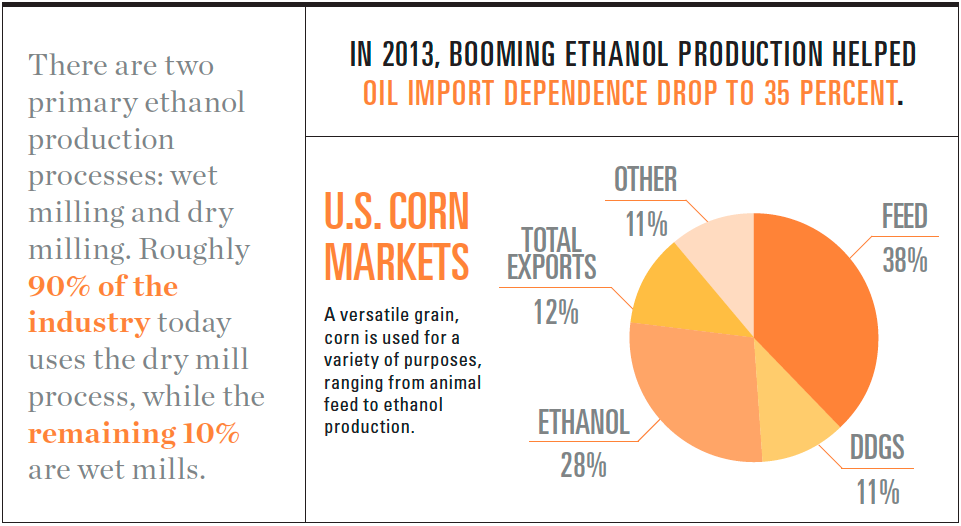
Tate & Lyle, a global provider of ingredients and solutions to the food, beverage and related industries, opened its Loudon County operation in the early 1980s and now has around 300 employees there. In 2011, DuPont Tate & Lyle Bio Products LLC – a joint venture between the two companies – began producing Bio-PDO from corn instead of petroleum-based feedstock at its Loudon County facility.
“The Loudon County location also provides feedstock to our joint venture with DuPont to make renewable chemicals,” says Chris Olsen, Tate & Lyle’s vice president for community and government affairs.

Big Impacts
The impact from Tate & Lyle on the economy in Loudon County and the surrounding area has been significant, in more ways than one.
“Besides the several hundred direct jobs, there are two other major economic impacts we have,” Olsen says. “The first one is the linked industries that have come to Loudon County that complement our plant. These include industrial gases, dry ice and trucking. These linked jobs virtually double the direct jobs Tate & Lyle provides.”
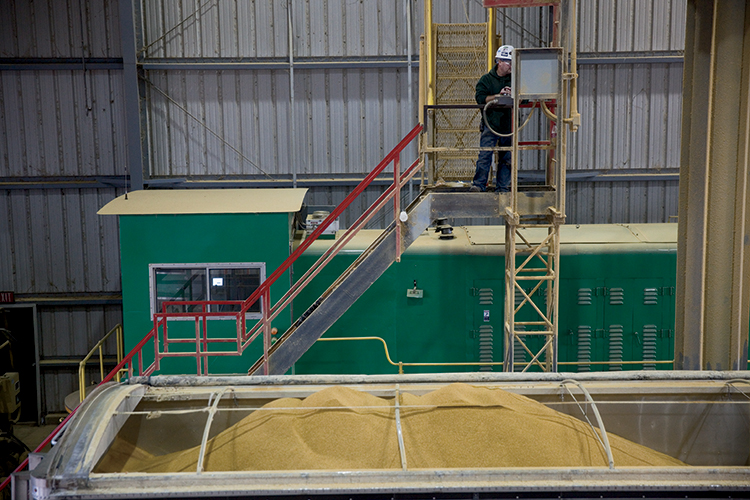
He continues, “The second economic impact we have is providing animal feed as a co-product of our manufacturing process. Livestock producers from all over the region utilize this animal feed that provides both nutrition and value to their operations.”
Likewise, the economy in Obion County and elsewhere in Northwest Tennessee is enjoying an upsurge since the addition of the GPRE plant, which employs around 55 workers. Ethanol production is particularly strong, with the plant producing 340,000 gallons a day.
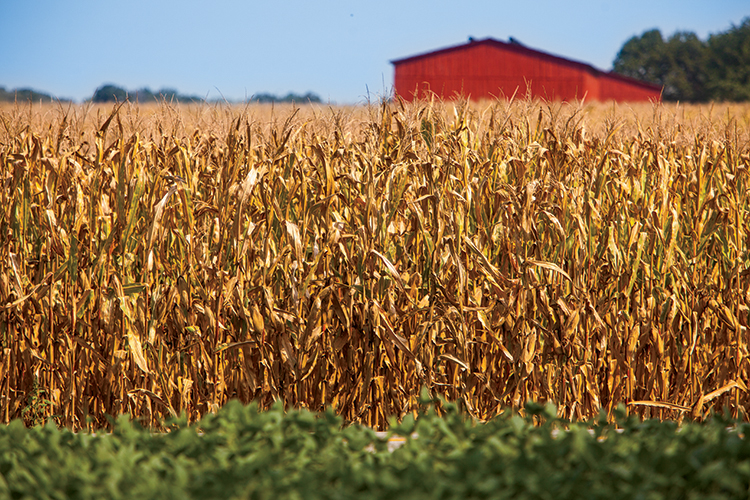
“If you’re talking county or state level, there’s not just the benefits of the farmer having a local customer,” Hogan says. “There’s also the benefit from the 55 employees and the contractors we hire and things like that. That pumps money back into the local economy.”



